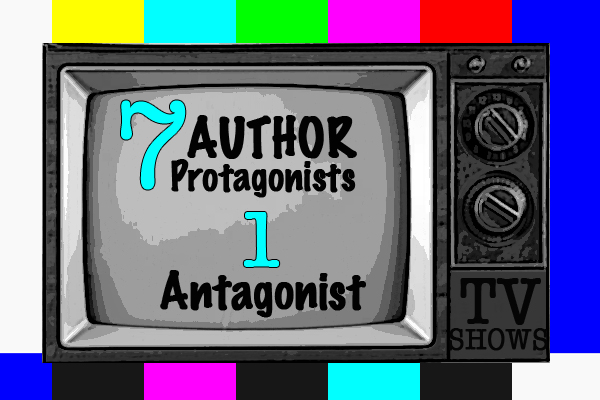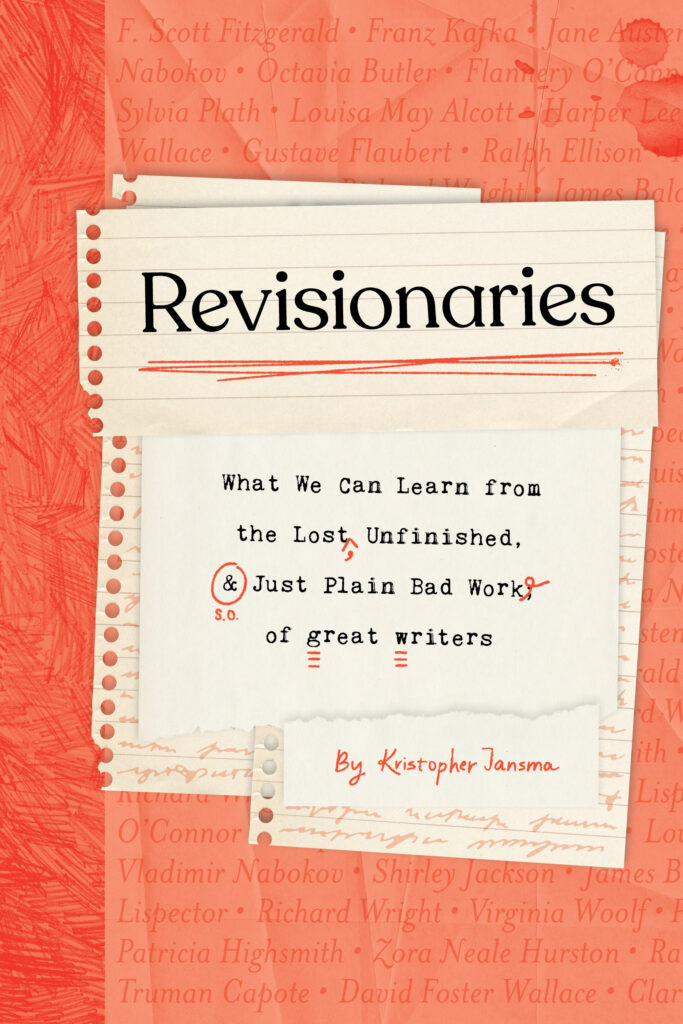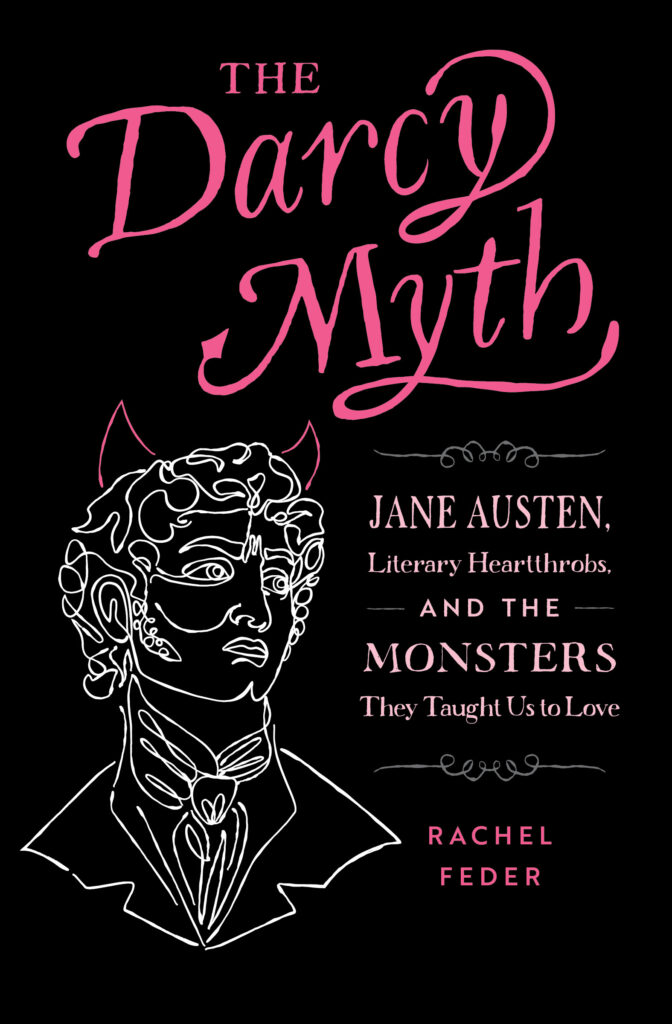REVISIONARIES Author Kristopher Jansma on Sharing Works-In-Progress
Once, long ago in my workshop days, a writer-friend of mine scolded me for talking openly at a party about something I was still writing. He firmly believed that anything still being written, any work-in-progress, should be totally shrouded in secrecy until it was finished. I wondered if he worried that someone would steal his ideas now if he revealed them? Or was it more superstitious? Did he think I could “jinx” myself by speaking about my work to others?
Loose lips sink ships, my grandfather, an old Navy man, used to say to me. But should a work-in-progress ought to be as closely guarded as a sailor’s cyphers?
I decided to adopt my friend’s stance and, for several years, maintained a cone of silence around my works-in-progress. At best it might protect me, I thought—at least it might create some eager expectation, some aura of mystique around my fumbling attempts to write my first book.
But after a while it became something else—just lonely. I missed those old workshops I’d once groaned through. Missed talking to other writers about what I was up to, and hearing from them about their projects too. Certainly I did not find that isolation was good for my art—over and over my books fell apart and the worst thing about it was that nobody even knew but me.
Finally, I decided to break the embargo. I created a simple blog where I could post drafts of my work each week for friends, even strangers, to see. I called it my Forty Stories blog—and I set it up mainly as a motivational tool, rather than as a system for getting feedback. My hope was that my friends would pressure me and hold me accountable if I didn’t deliver on schedule.
I told everyone that I planned on writing forty stories in a single year—one a week, for three weeks, followed by a revision week. Some of these pieces, I admitted up front, would surely be terrible. But hopefully at least some would not be. Even the good ones, though, would be rough, I warned them. Quickly made, needing extensive reworking. But they would exist, warts and all.
At the start I had no idea if I could really pull it off. The stories I posted in the beginning of the year were usually very short, largely undeveloped. But people responded—not always with compliments, and often with just an acknowledgement that they’d read the piece and were excited for another. Was it just having an audience, I wondered? Or was it something else? Either way I no longer felt so isolated and burdened by my works-in-progress. Better yet, the things I wrote took on new hues. I noticed an improvement. They felt more generous than anything I’d written earlier—and why shouldn’t they be? I was writing for others, more than for myself.
In the end, I did it. I wrote forty stories in one year. Many of them were pretty bad, and sometimes my friends were honest and said as much. Some weeks I simply had no good ideas. Other weeks I had a good idea and it simply didn’t come together. Oh well. There was always the next week. And in the end, a decent number of them were good enough to warrant revision, and eventually a handful even became the backbone of my first published novel.
None of that would have happened if I had been afraid to share something that I was still figuring out.
It is rare that we’re told about how often great writers depend on those around them for guidance. Franz Kafka had his dear friend, Max Brod; Vladimir Nabokov had his wife, Véra. Who can we count on for encouragement, or even discouragement when it is needed?
My Forty Stories experiment showed me that there were far more helpers in my life than I’d ever expected. Some friends would simply reach out to say, “Hey, I liked this one!” and others would sometimes say, “Were you really rushed this week? Didn’t like this one as much, I don’t know why.” One friend routinely fact-checked the weekly pieces, sending emails to say things like, “A pack of American Spirits would actually cost $4.57 at that bodega, not $3.77,” or, “If these characters are going to Lake Waccabuc, they’d be better off on the Hutchinson and I-684 at that time of day.”
All of this was valuable feedback, and vital support. I’d never have written the fortieth one, or likely even the third one, without the help of my friends.
Just the other day I saw a former student after an event and, as we spoke after he asked if I’d ever published one of the stories from my blog, and I said that no, I never had—it wasn’t one of my favorites and I’d forgotten about it. But he had liked it, he said, and thought about it still—maybe I should look again, he suggested. That night I did, and wouldn’t you know it, I suddenly saw its strength in a way I’d never seen before. The difference was that now I was seeing it through someone else’s eyes. What a gift that can be!
It’s understandable that we might prefer to be secretive when it comes to our works-in-progress. Writing is a vulnerable thing, and when we feel exposed we become cautious. When our work is in a messy state we want to hold back until it isn’t. After we’re finished, we want to cover our tracks and hide those rougher drafts from the light of day. We may not be able to stand others poking around in our not-yet-great work and wrecking our shaky confidence in the process.
But my best advice is to get over all that. Share the good, the bad, and the ugly. Share it openly and proudly. I still love bouncing ideas off other people. Seeing what excites them and what does not quite land as expected. If I have to suffer a little embarrassment sometimes and confess to a project disintegrating at some point along the way—well, so be it. There’s always next week, and the more you share with others, the more you’ll be able to see your work through their eyes. So go ahead and loosen those lips; your ships won’t sink but will rise on an open tide.






